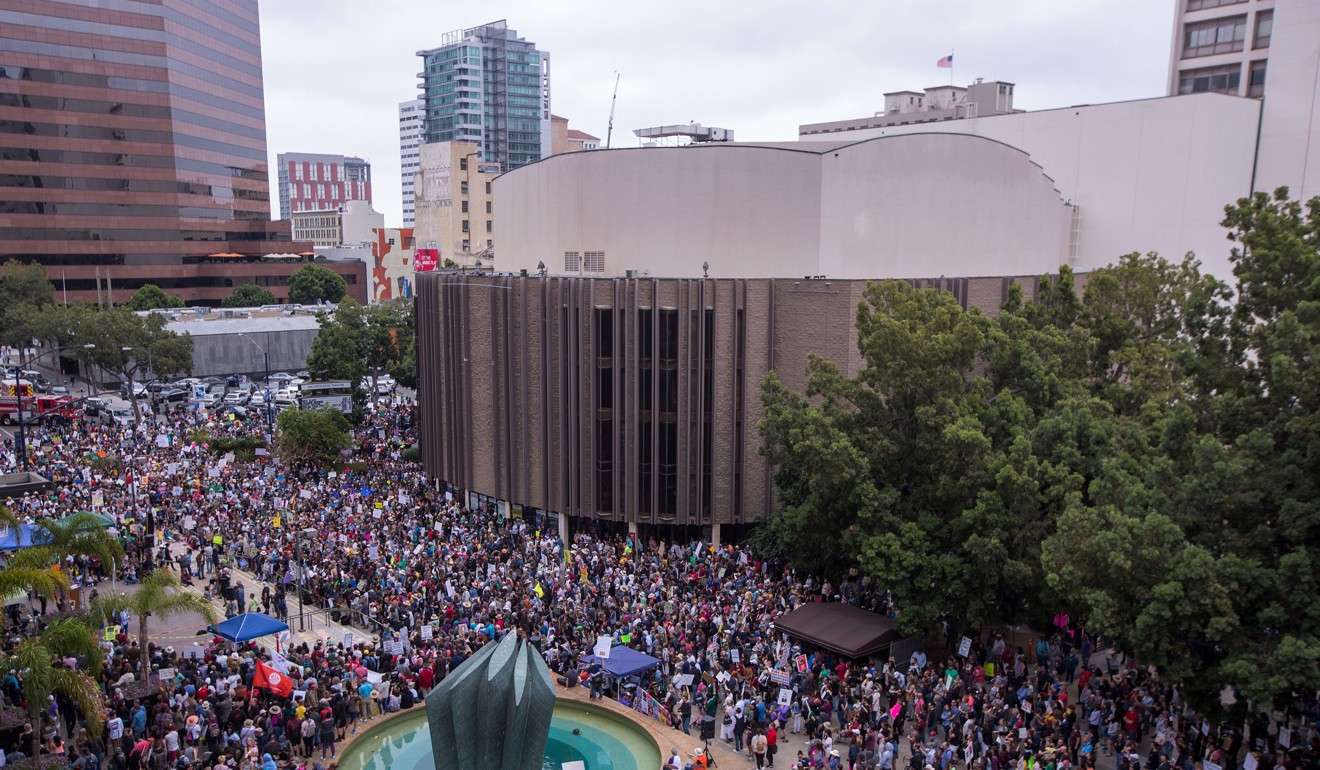
US judge temporarily halts immediate deportations of reunited migrant families
Judge who ordered Trump administration to reunite families stays deportations so that parents can decide whether to pursue asylum
A federal judge on Monday ordered a temporary halt to any deportations of migrant families who were reunited after being separated at the border by the Trump administration.
US District Judge Dana Sabraw in San Diego, California, imposed a delay of at least a week after a request from the American Civil Liberties Union, which cited “persistent and increasing rumours … that mass deportations may be carried out imminently and immediately upon reunification”.
Justice Department lawyer Scott Stewart opposed the delay but did not address the rumours in court. He said he would respond later in writing. The judge gave the department until Monday, July 23.
Late last month, Sabraw ordered the government to reunite thousands of children and parents who were forcibly separated in recent months under the Trump administration’s “zero tolerance” policy toward those who illegally cross into the US. He set a deadline of July 10 for roughly 100 children younger than five and gave the government until July 26 to reunite more than 2,500 older youngsters.
The Trump administration reunited about half the under-five children by last week, saying that in many of the remaining cases, the adults had criminal records or were determined not to be the youngsters’ parents at all.

In asking for a delay in deportations, the ACLU said that parents needed a week after being reunified with their children to decide whether to pursue asylum.
That decision “cannot be made until parents not only have had time to fully discuss the ramifications with their children, but also to hear from the child’s advocate or counsel, who can explain to the parent the likelihood of the child ultimately prevailing in his or her own asylum case if left behind in the US (as well as where the child is likely to end up living)”, the ACLU said.
Why Donald Trump wants to separate immigrant children from their parents
On Friday, the judge said he was having second thoughts about whether the government was acting in good faith, after the Trump administration warned that accelerating the reunification process by dropping DNA testing could endanger children.
But on Monday, Jonathan White of the Office of Refugee Resettlement, who is overseeing the government’s effort, assured the judge that some reunifications of older children had already occurred, and that “it is our intent to reunify children promptly”. He went into detail on how the process was working.
Sabraw praised White, saying his testimony on the reunification plan gave him confidence. “What is in place is a great start to making a large number of reunifications happen very, very quickly,” the judge said.
Crossing border may mean separation from your children; not crossing can be worse
Justice Department lawyers also assured Sabraw that the children were well cared for, offering him a visit to a shelter if he wanted.
The judge replied that the main concern wasn’t whether the children were well cared for.
“Obviously the concern that has been at issue has been the passage of time,” he said. “No matter how nice the environment is, it’s the act of separation from a parent, particularly with young children, that matters.”
Sabraw has scheduled three more hearings in the next two weeks to ensure compliance with his order.

